The year from hell: Survivors of Beirut blast trapped in grief as Lebanon heads towards abyss
One year on, victims and survivors struggle to carry on with their lives, writes Bel Trew in Beirut

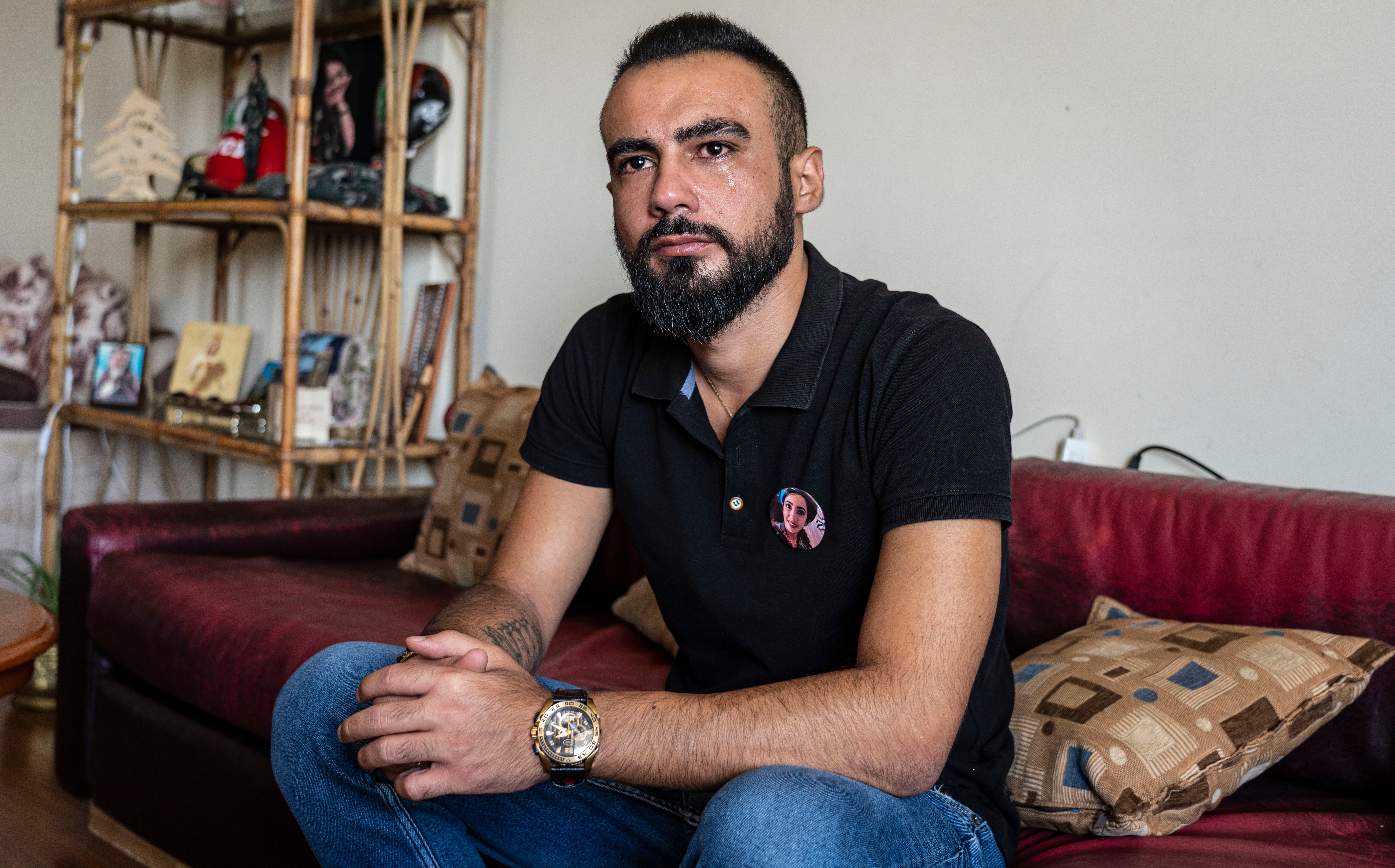
Your support helps us to tell the story
From reproductive rights to climate change to Big Tech, The Independent is on the ground when the story is developing. Whether it's investigating the financials of Elon Musk's pro-Trump PAC or producing our latest documentary, 'The A Word', which shines a light on the American women fighting for reproductive rights, we know how important it is to parse out the facts from the messaging.
At such a critical moment in US history, we need reporters on the ground. Your donation allows us to keep sending journalists to speak to both sides of the story.
The Independent is trusted by Americans across the entire political spectrum. And unlike many other quality news outlets, we choose not to lock Americans out of our reporting and analysis with paywalls. We believe quality journalism should be available to everyone, paid for by those who can afford it.
Your support makes all the difference.Every day Gilbert Karaan chats away on WhatsApp to his fiancée Sahar, despite the fact she was killed by the deadly explosion that ravaged Beirut exactly a year ago.
Paralysed by grief, the 31-year-old recharges his partner’s mobile phone line so that his unanswered messages are still received by the device.
Around him, the contours of his house form a kind of cenotaph to his partner of seven years, who was a fire department paramedic and on duty the day she was killed. There isn’t a surface that doesn’t carry a photo, figurine or painting of Sahar Fares, 27, smiling back in her uniform.
Even Gilbert’s body is a shrine: Sahar’s face is tattooed on his left forearm, her name scrawled on his neck.
“They say life moves on but mine is stuck on the fourth of August 2020, I cannot move forward,” he says, his face hollowed by grief, his body two stone lighter from being unable to eat properly over the last 12 months.
“I am living it every day. I cannot sleep. I keep thinking that she is just travelling. I cannot imagine her not coming through the front door.”
What makes it worse was that Gilbert was on a video call with Sahar, at a few minutes past 6pm on 4 August when hundreds (if not thousands) of tonnes of poorly stored explosive materials blew up at Beirut port, instantly killing her.
Her team from the Beirut fire department had been deployed to help put out the fire in hanger 12 that contained the explosive stockpile. She had no idea that she was walking into certain death.
The last thing Gilbert saw on that call was smoke, fireworks and fire billowing behind her terrified face. He screamed at her to run and for a few minutes she did, her world swinging back and forth in the prism of the phone screen.
“Then the line suddenly went dead. Two seconds after that the blast threw me to the ground,” he says, swallowing his words with a pause.
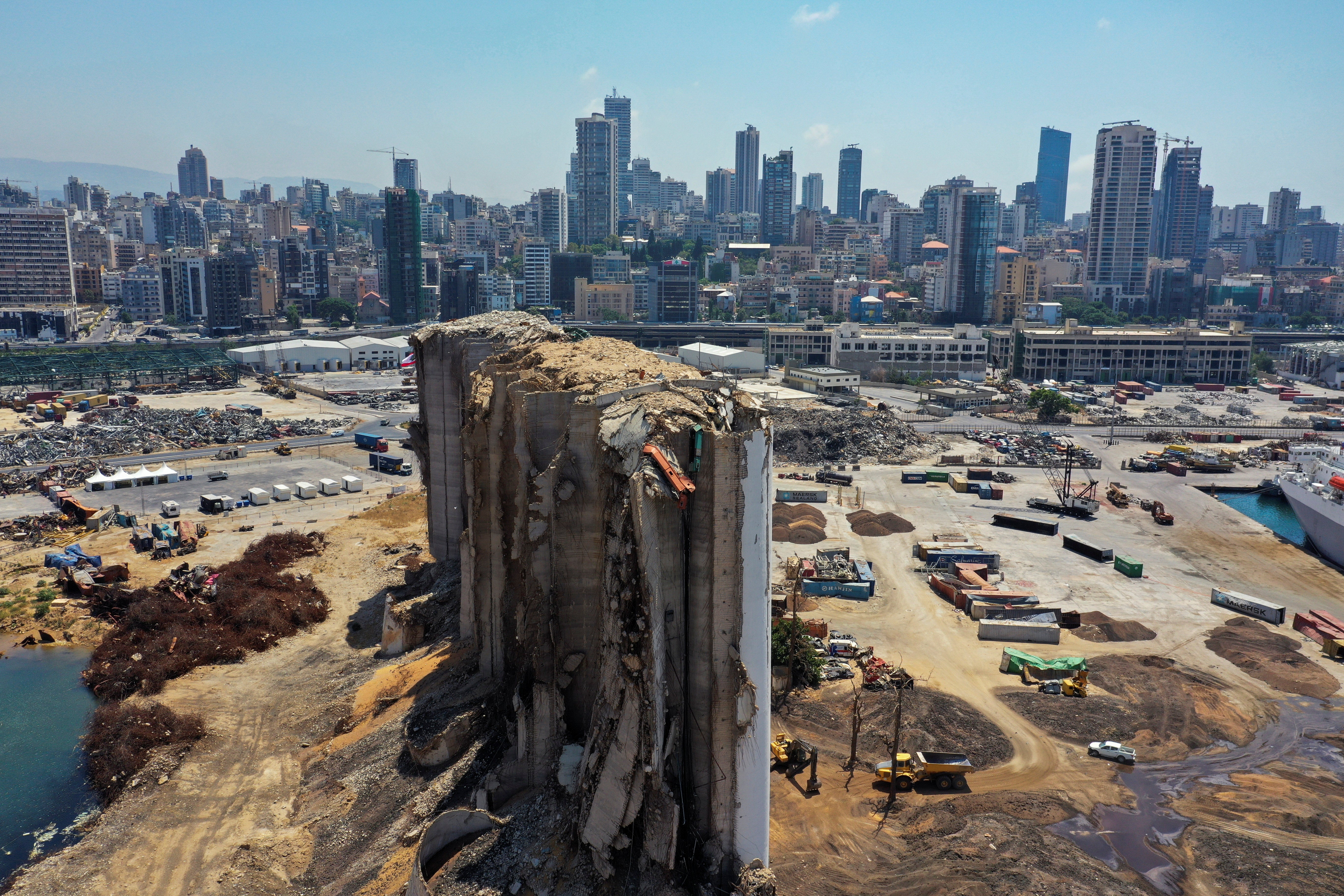
One year on from the explosion which killed 217 people and injured over 7,000 more, the families of the victims and the survivors of the blast tell The Independent that they cannot escape the ugly loop of that day, because so little has changed and there has been so little progress.
At the root of the anger and despair is the fact no one has been held responsible for what is believed to be one of the single largest non-nuclear explosions in modern history. This is despite a damning paper trail showing that senior officials from the port authorities to the president knew about the deadly stockpile of ammonium nitrate behind the explosion, but did nothing about it.
Instead, the domestic investigation has repeatedly hit a wall. No one senior has even been properly questioned due to a blockade of immunity,
This week a committee composed of the victim’s families, who staged a mock funeral outside one official’s house in protest, demanded the authorities lift immunity from the accused within 30 hours, warning “we will move towards more confrontational movements”. On Tuesday Human Rights Watch urged the United Nations Human Rights Council to mandate an international investigation and even called on countries to impose targeted sanctions.
Compounding the hurt is the fact that thousands of the estimated 77,000 residences damaged or destroyed in the explosion have yet to be fully rebuilt. The waterfront closest to the port, once an impressive skyline of apartment blocks, businesses and bars, is still a jagged-tooth wasteland.
As the country has been ravaged by the additional blow of one of the worst economic crises in modern history, those who remain seriously wounded are struggling with their injuries amid chronic medical shortages that have made even finding over-the-counter painkillers near impossible. Hospitals can offer little respite, as they are trying to operate with few supplies and power cuts that last up to 20 hours a day.
‘There is pain every second of every day’
Each morning Tracey Awad-Naggear wakes up and cries for half an hour, before pulling herself together and carrying on with her day fighting for justice for her daughter.
Three-year-old Alexandra Naggear is among the youngest victims of the blast.
In the absence of any help from the security forces or the state, on the evening of 4 August her parents were forced to ferry Alexandra’s inert body between hospitals on the back of a stranger’s scooter; a delay they fear could have cost her her life.
Her husband Paul, tells The Independent that “the pain every second of every day” of missing his daughter is made harder as the crime remains unpunished and unsolved.
“We have no truth, no justice, no one has been held accountable. And we have no space to grieve,” he says.
“Even the same day of the funeral when she was buried, my wife and I knew we needed to fight, we needed to be vocal.”
He says the families have begun looking outside for help, urging the international community not to intervene but to cut diplomatic ties with those implicated in the explosion.
“It is criminal to ask the same people that killed us on 4 August to form a government and to rule us again. This is intolerable.”
Leaked official documents The Independent has seen show that Lebanese customs, military and security authorities, as well as the judiciary, had warned successive governments at least 10 times of the dangerous stockpile of explosive chemicals which arrived by ship to the port in 2014.
Lebanese president Michael Aoun also admitted that he had knowledge of the danger but had “left it to the port authorities to address”. Hassan Diab, the prime minister, was also handed a security report with details.
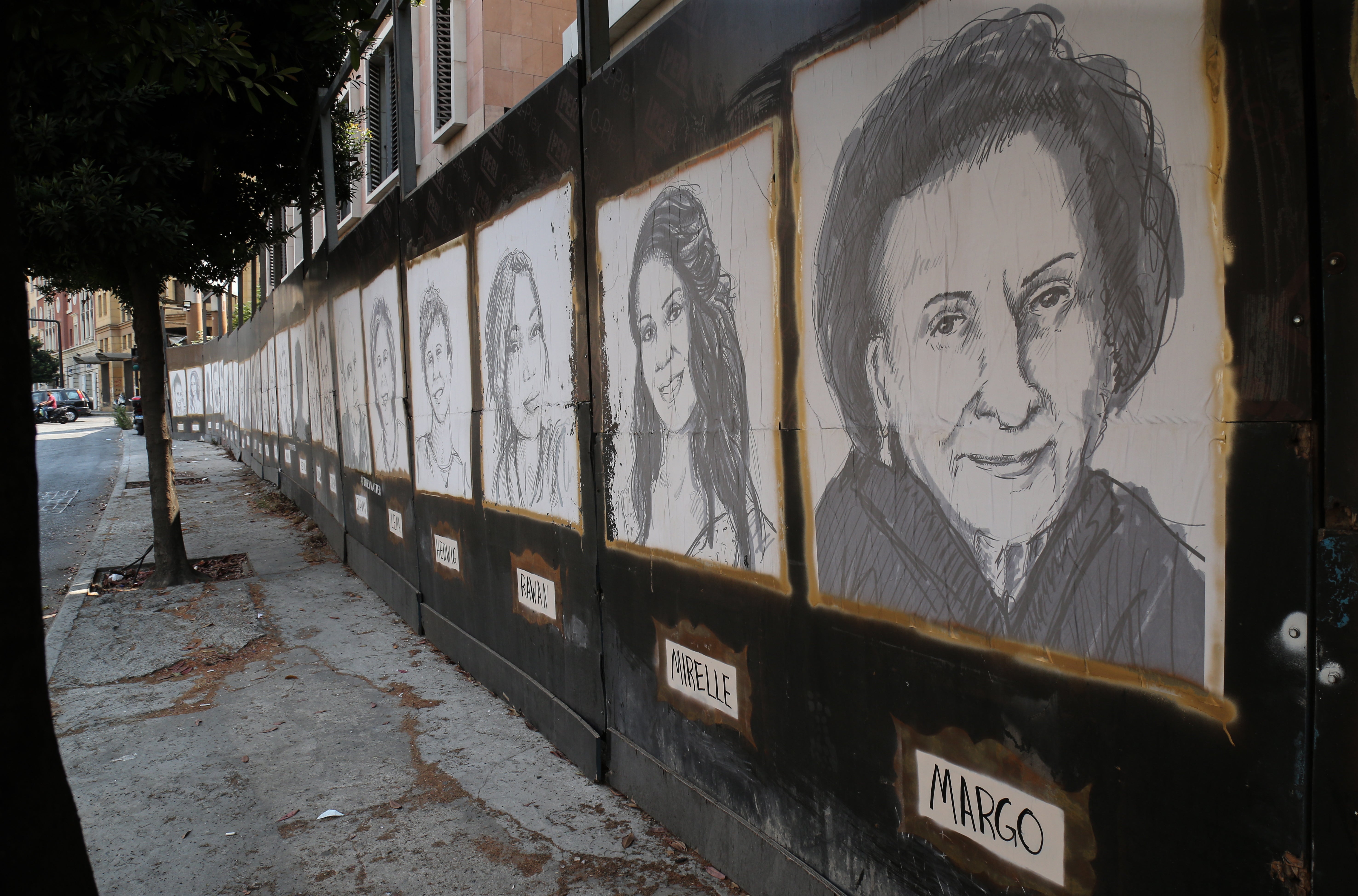
Despite this, MPs and officials who deny the accusations have been claiming their right to immunity throughout the investigation.
The authorities even dismissed the first judge appointed to the investigation after he summoned political figures for questioning. They have since rejected the new investigative judge’s requests to lift MP immunity and to question senior members of the security forces in connection with the tragedy.
Ayman Raad, a prominent lawyer who is representing one of the victims, says the only body to remove immunity has been the Beirut Bar Association, which is headed by an independent who has come under fire for his actions.
While a positive step, there is still a “merry go round” of other layers of immunity that is making it impossible for the families to push the investigation forward.
“You have judges, lawyers, MPs, security officers, ministers all playing their different immunity cards. And so if you break one chain, like the Beirut Bar Association that lifted immunity for two individuals as lawyers, they still have immunity as ministers or members of the parliament.
“They are manipulating this file in a way that we have no clear enemy to attack,” he adds. “We are in a deadlock.”
This week Amnesty International accused the authorities of spending the past year “shamelessly obstructing victims’ quest for truth” and having “brazenly blocked and stalled justice at every turn”.
Human Rights Watch, in a 700-page report, has called on governments across the world to impose targeted human rights and corruption sanctions, including travel bans and asset freezes, on those responsible for ongoing violations of human rights related to the 4 August explosion.
The authorities vehemently deny the accusations of involvement in the blast or of obstructing justice. When asked about the HRW report by The Independent, the office of the caretaker prime minister Hassan Diab, who has been charged with negligence alongside three ex-ministers, said he had “done all within his power during the short period of time... to address the issue of the ammonium nitrate stored at Beirut Port’s hangar 12.”
The statement added: “To be accused of negligence when [the PM] had immediately taken action as required, and within the limits of his Constitutional powers, would not only be preposterous but also an attempt to divert attention from the true culprits and bury the truth that the PM had been calling upon the judiciary to reveal.”
His office declined to answer specific questions about the calls for immunity to be scrapped. They also released a statement blaming “corruption backlogs” and “the deep state”.
“The 4 August blast has revealed the faults of the country,” the statement read. “The corruption that eats Lebanon away has been partly exposed, and the features of the deep state, the state of corruption, have emerged”.
‘I’m still there on the fourth of August’
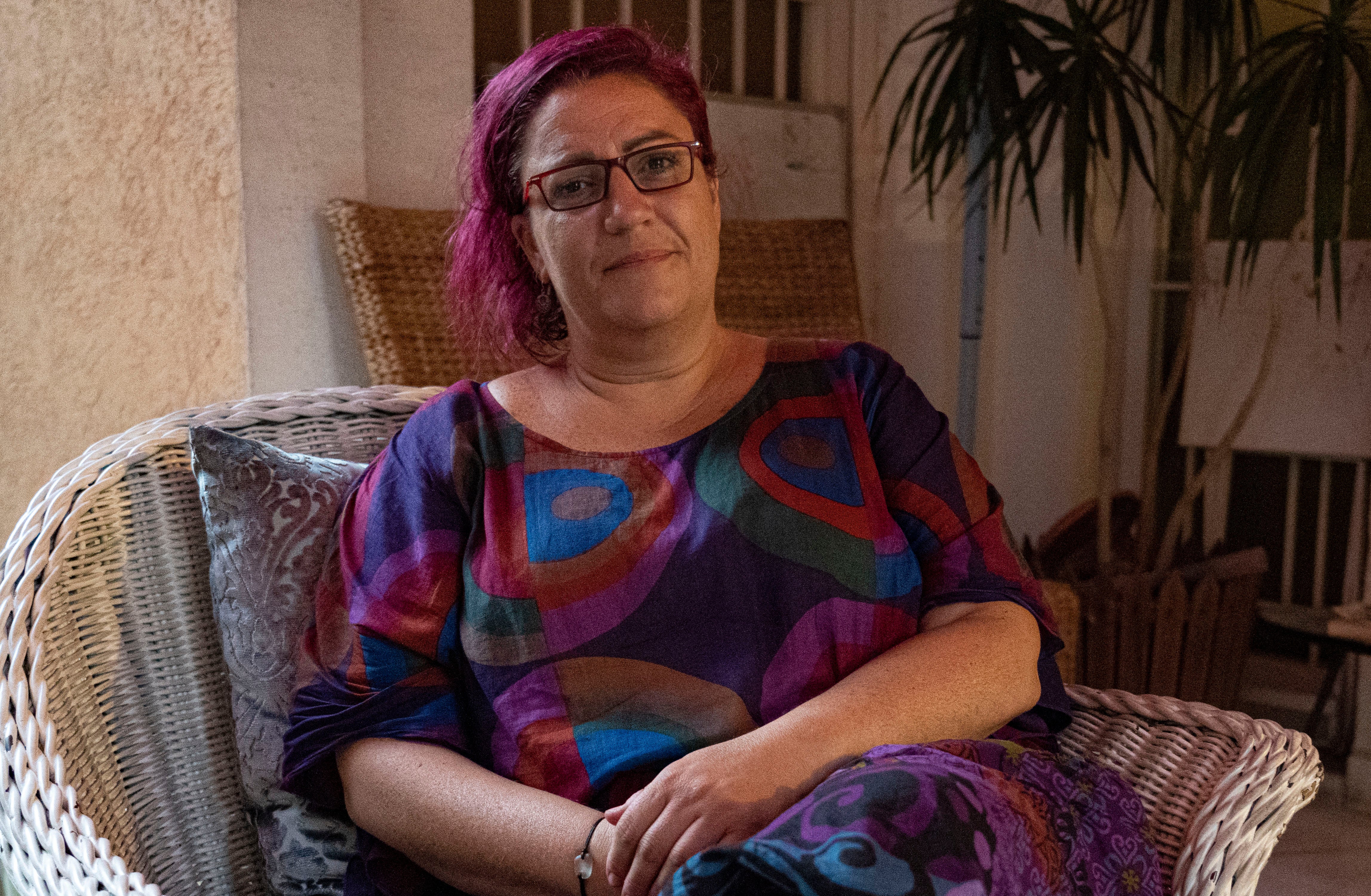
Carmen al-Khoury, confused by a noise that sounded like a low-flying plane, was peering at the sky when it broke open, unleashing a white ring of hell that chewed up everything in its path.
She regained consciousness pinned under a car by a heavy metal sign which had been ripped off its hinges, next to a dying woman choking on her own blood. Beside them, another woman walked past carrying her severed hand.
In the chaos of overwhelmed hospitals, it took days for the university academic and administrator to receive a full diagnosis.
The dislocated shoulder, broken elbow and Achilles tendon rupture, were eventually treated. But one year on, the damage to one of her kidneys from the force of the blow means she needs to leave the country as medicines have disappeared and she needs dialysis which is not available.
“The dialysis machines are not working: supplies are so low they are only giving it to those who have two kidneys not working,” says the mother-of-two, explaining that she is in pain every day.
“I don’t have any of the other medicines I need here so I am trying to get them from anyone who can bring them from abroad.”
Once among the more privileged in Lebanon, she is now struggling to make ends meet. Her university salary is paid in Lebanese lira that has lost over 90 per cent of its value over the past year, meaning she has a monthly income of just a few hundred dollars. Her savings from nearly three decades of working are worthless.
“I’ve had no help with medical bills, the army hasn’t compensated us for the damage to the house and we have had no support from the state,” she says.
Her story echoes so many others who are dealing with life-changing injuries in a country whose economy has completely collapsed. In January the Norwegian Refugee Council reported that 42 per cent of families affected by the blast who had chronic medical conditions cannot continue their treatment – a percentage which is thought to be far higher now.
“I am still there on the fourth of August,” Ms al-Khoury adds with a familiar haunted tone. “It has shattered our homes, our lives. It is very hard to be this helpless and not know where to go and what to do.”
‘No justice, no answers’
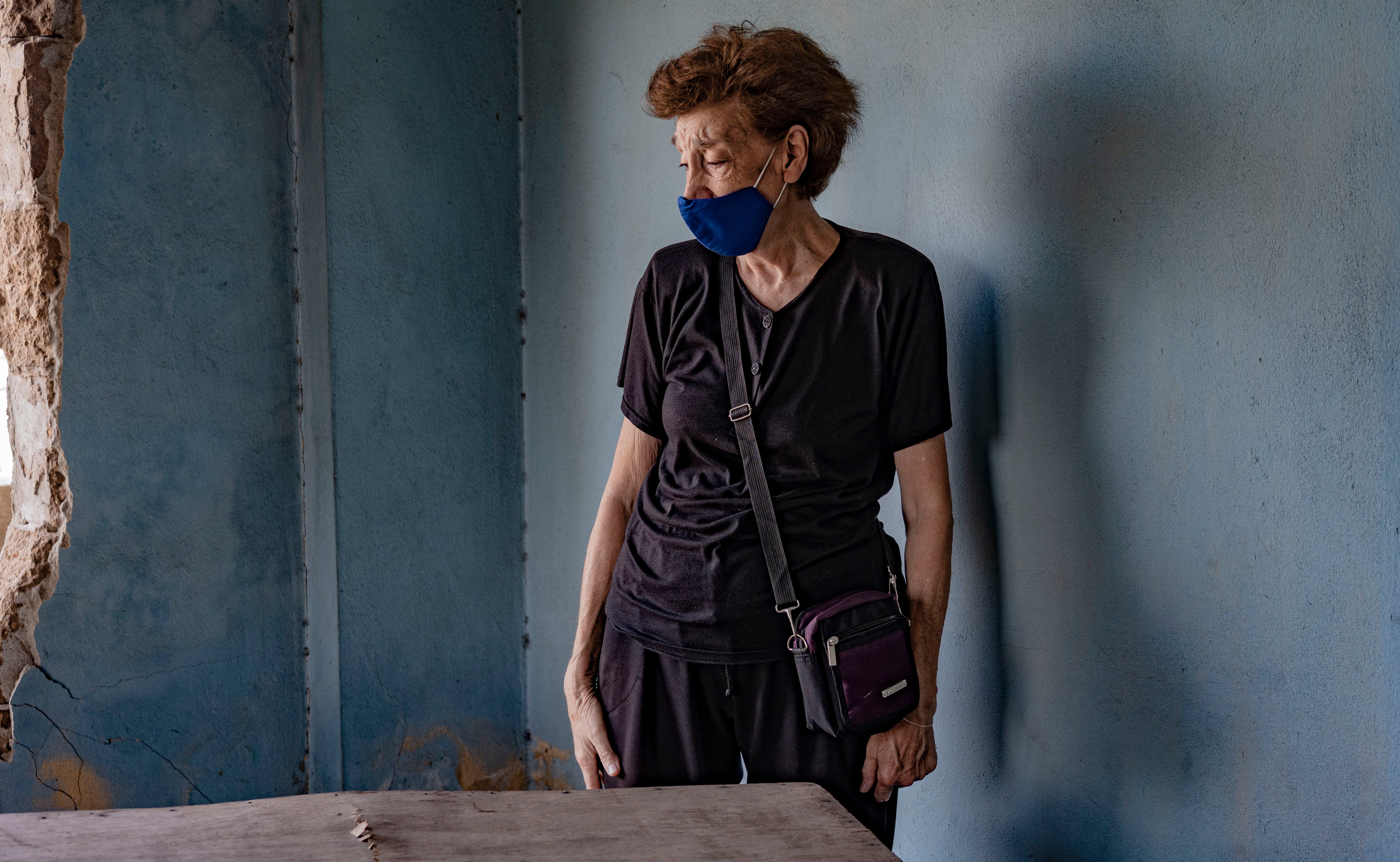
Having lived through decades of civil war, Makrouhi Arkanian and her elderly uncle knew that it would be wise to move away from the windows when, at 6pm on 4 August, the first boom sounded from the port warehouse just a few hundred metres away.
Seconds later, a white tornado of pressure tore through their home. The 74-year-old Lebanese Armenian sat in the ransacked house for hours, next to the bloody corpse of her relative, as no one came to help.
One year on, Makrouhi’s home, one of 77,000 building units which the UN estimated were damaged or destroyed, appears frozen in that destruction.
No one has come to clear out the rubble, let alone repair it, she says.
In fact, Makrouhi says the only people who have helped her were volunteers who ferried some of her most precious belongings to a tiny flat she now rents in a different part of the city.
She has finally received 30 million lira (around $1,500 on the black market rate) from the Lebanese army in compensation which she is now living off. But as prices soar it won’t last for long.
“Why haven’t the authorities at least helped me clear up the flat?” she asks, picking her way through the rubble.
“I miss my house so much. There is no justice, no answers. We didn’t receive anything.”
Only about 50 per cent of an estimated 77,000 buildings damaged in the blast have been repaired, Maroun el-Helou, the head of Lebanon’s Contractor’s Syndicate, told Al Jazeera last week.
That has meant that thousands of people remain homeless or, like Makrouhi, are struggling to make do in temporary rented accommodation, as prices soar.
Elena Dikomitis, from the NRC in Lebanon, tells The Independent that many people are at risk of eviction because they can no longer pay rent and they have been skipping meals in order to survive.
“The neighbourhoods closest to the epicentre of the explosion at the port were already the poorest areas of town prior to the blast and have now sunk even deeper into poverty,” she says.
‘We are the ones that are dead’
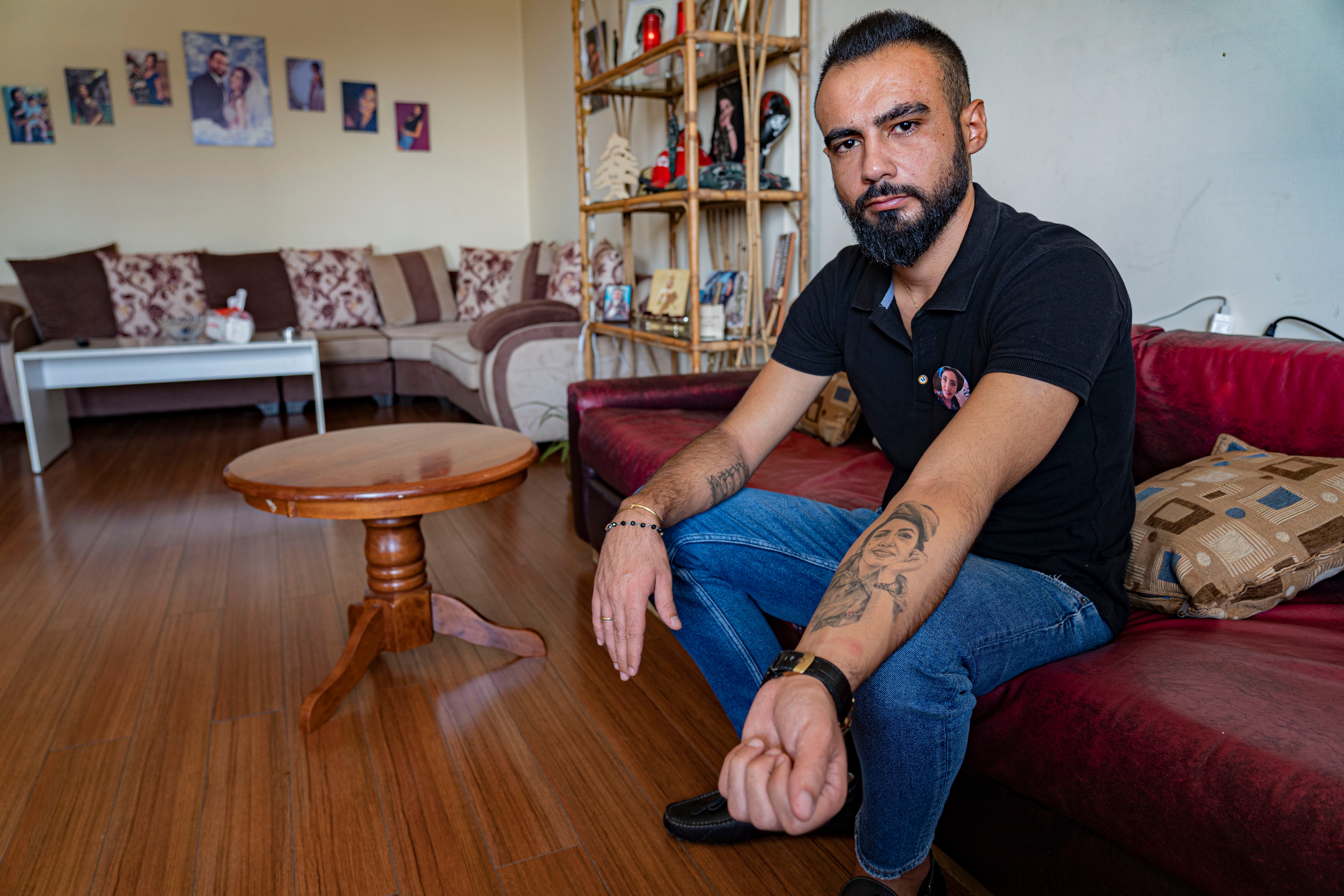
One year on, trapped in a loop of pain, the families of victims and survivors are fighting on and have vowed to take to the streets on 4 August in mass rallies.
And so from the ashes has risen a “wind of change,” according to Paul Naggear.
“After the fourth of August we felt that there was a creation of a new movement, there was an enormous act of solidarity in the place of lack of government action,” he adds, explaining that moved beyond citizens clearing the streets, giving out food and helping rebuild homes.
Last month he was elected atop a list of independent candidates that swept control of the leadership of Beirut’s professional syndicate for engineers and architects, which is normally controlled by the country’s main political parties. The turnout was triple the previous syndicate elections.
He says that is step one in breaking the stranglehold the country’s traditional party structures have on power.
Sometimes I say Sahar is the one who is living, and we are the ones that are dead
For Gilbert, his hope lies in holding those responsible for the blast to account as it is step one in breaking a long pattern of immunity granted to corrupt officials that has ravaged the state.
“For me, it won’t help my pain but I am putting pressure on the investigation for the victims so they are not just numbers,” he tells The Independent, wearing a badge bearing Sahar’s face.
“If we can get justice it might help the future, for the young people, so they at least see change.”
He says, for now, while that seems impossible, they remain trapped in the hell of 4 August.
“I thank God that Sahar didn’t have to live through the state of the country as it is now. She is in a better place than we are in Lebanon,” he adds with a crack in his voice.
“Sometimes I say Sahar is the one who is living, and we are the ones that are dead.”





Join our commenting forum
Join thought-provoking conversations, follow other Independent readers and see their replies
Comments